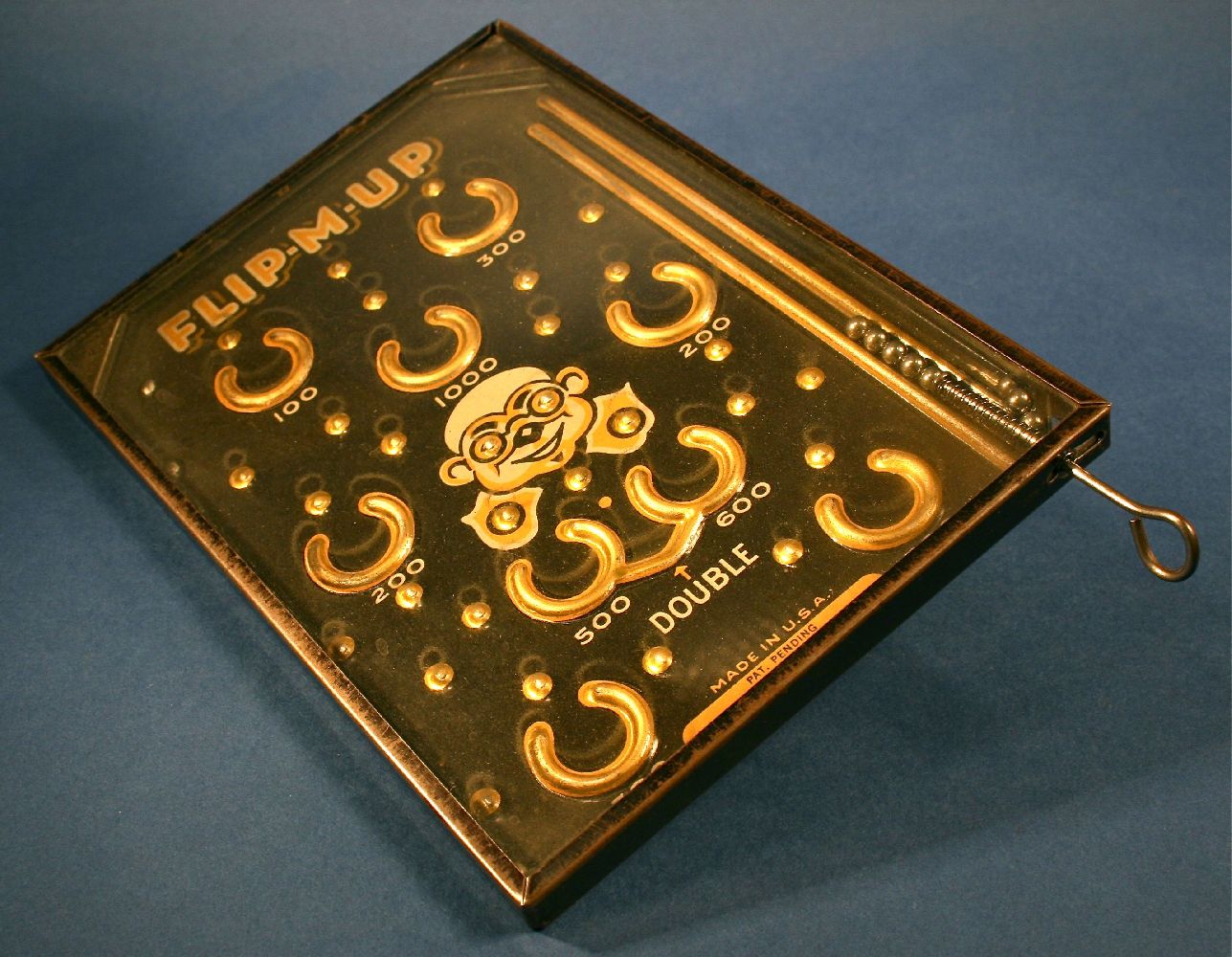

Title: Antique Flip-M-Up Little Portable Mechanical Pinball Clown Game
Shipping: $29.00
Artist: N/A
Period: 20th Century
History: N/A
Origin: N/A
Condition: Museum Quality
Item Date: 1930 to 1950
Item ID: 6004
This is a little vintage 1930s 1940s Flip-M-Up portable pinball or clown game. A mechanical pinball game you can take with you anywhere -- no electricity required. This vintage game, made by Northwestern Products Co. in St. Louis, Missouri, has a metal frame, a glass and a cover. The game mechanism works well. Size: approximately 5" x 7" Made in U.S.A. All of the art is edited and chosen by us for its high quality and workmanship before posting. We are committed to enhancing our customer’s lives by discovering creating, and pointing out only the best art we can find in the world today. We Are Taste-Makers, Art Advisers, Consultants & Publishers Of Spectacular Art Stories. Our job is to be intermediaries between buyers and sellers. We are vetting for high end art patrons. We are determined to catalog the world's most exceptional art and share it with everyone.
Link: http://en.wikipedia.org/wiki/Pinball
Pinball is a type of arcade game, usually coin-operated, in which points are scored by a player manipulating one or more steel balls on a play field inside a glass-covered cabinet called a pinball machine. The primary objective of the game is to score as many points as possible. Points are earned when the ball strikes different targets on the play field.
The origins of pinball are intertwined with the history of many other games. Games played outdoors by rolling balls or stones on a grass course, such as bocce or bowls, eventually evolved into various local ground billiards games played by hitting the balls with sticks and propelling them at targets, often around obstacles. Croquet, golf and paille-maille eventually derived from ground billiards variants.
The evolving and specializing outdoor games finally led to indoor versions that could be played on a table, such as billiards, or on the floor of a pub, like bowling and shuffleboard. The tabletop versions of these games became the ancestors of modern pinball.